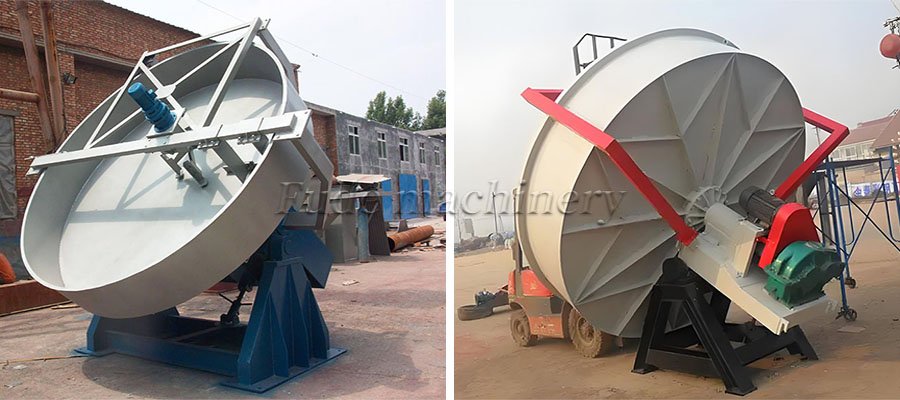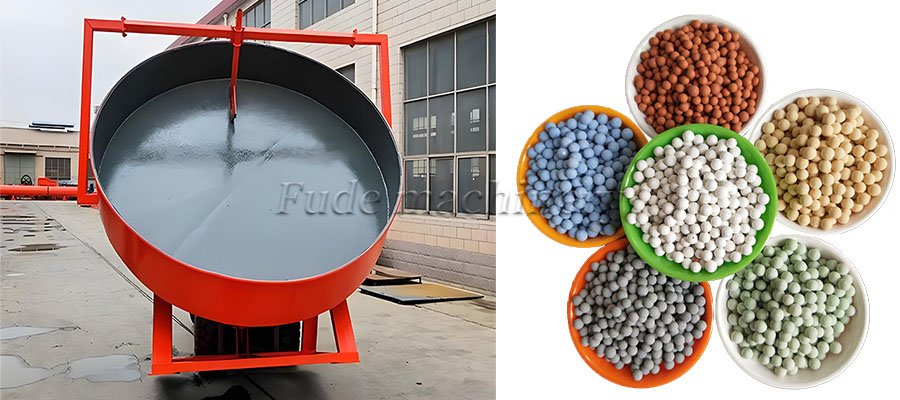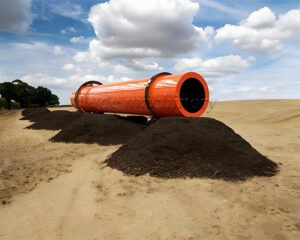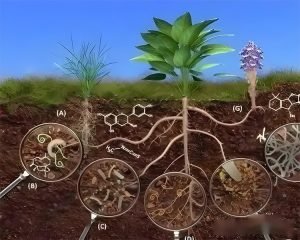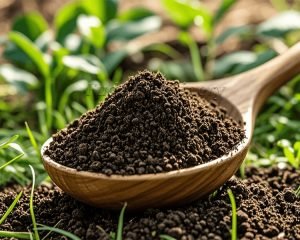The efficient production of mineral granular fertilizers stands as a crucial task for industries aiming to maximize resource utilization and product quality. Various sectors, such as mining, chemical, and environmental management, require high-performance solutions for handling raw mineral materials and transforming them into value-added fertilizer granules.
How can pan granulator machines enhance the mineral fertilizer production process, and what raw materials are suitable for this advanced granulation technology?
Mineral fertilizer manufacturing industries typically process a wide range of rock, mine, ore, and mineral-based materials. Common raw materials include limestone, gypsum, dolomite, potash ore, rock phosphate, bentonite clay, and various mineral-rich mine by-products.
For example, limestone and dolomite provide essential calcium and magnesium nutrients, addressing the needs of soil improvement and construction materials industries. Gypsum contributes sulfur and calcium, making it valuable for waste management and soil reclamation projects.
Potash ore delivers potassium, which proves critical in chemical manufacturing or specialty mineral blends. Rock phosphate supports the phosphate industry, especially in the granulation of compound fertilizers and phosphate-rich products used in both agriculture and industrial applications.
Additionally, mine waste from mineral extraction processes can be recycled through proper granulation equipment, contributing to sustainable mine waste management solutions.
How Does Advanced Pan Granulator Equipment Improve the Granulation Process for Mineral Fertilizer Manufacturing?
Pan granulation technology, also known as disc or pan pelletizing, has become a preferred method for transforming mineral powders and ores into uniform granules. This procedure offers several advantages for mineral fertilizer producers.
Pan granulator machines feature adjustable angle and rotational speed, allowing operators to control granule size and density according to product requirements. The open design facilitates observation and adjustment throughout the process, which leads to consistent particle shape and minimizes oversized or undersized granules.
The disc granulator’s shallow, rotating pan ensures that fine mineral particles—whether crushed limestone, ground rock phosphate, or blended mine residues—undergo even granulation through controlled wetting and rolling motions.
Compared with rotary drum granulators or fluidized bed systems, pan pelletizers offer easier operation and maintenance, particularly when dealing with variations in mineral fertilizer material properties. The ability to process a wide range of ore-based inputs, along with low energy consumption and flexible output rates, matches the demands of industries focused on mineral fertilizer granule production.
Which Supporting Machines and Production Solutions Enhance the Mineral Fertilizer Granulation Process?
Efficient mineral fertilizer production requires a complete set of processing equipment alongside advanced pan granulator machinery. Ore fertilizer crusher machines, such as jaw rock crushers or raymond mills, play a critical role in reducing mined materials to suitable particle sizes before pelletizing.
After granulation, screening machines ensure product uniformity by separating qualified mineral granules from fine powders and oversized particles. Integrated production lines, including limestone fertilizer production solutions, rock phosphate fertilizer manufacturing, and mineral organic fertilizer production systems, often rely on the synergy between crushing, granulating, screening, and sometimes drying machines for optimal results.
Industries can select specific machines and process configurations according to their mineral feedstock type and final product requirements. For instance, the manufacturing of NPK fertilizers may combine multiple mineral and chemical ingredients, while bulk fertilizer blending plants focus on custom granule formulations. Mine waste management systems also utilize granulation technology to transform mining by-products into safe, value-added fertilizer particles.
In summary, industries engaged in mineral fertilizer granule manufacturing benefit significantly from the adoption of advanced pan granulating equipment.
The versatility to process various rock, ore, and mineral materials, combined with precise granule formation and efficient material handling, ensures high-quality products and optimized resource usage. By integrating supporting equipment such as ore fertilizer crushers and screening machinery, the overall granulation process achieves superior consistency and productivity.
For those seeking robust mineral fertilizer equipment and custom production solutions, a professional fertilizer equipment manufacturer such as Fude Machinery delivers reliable machinery and technical support to meet diverse industry needs in mineral granule manufacturing.
 Organic fertilizer equipment,organic fertilizer production line,organic fertilizer equipment factory
Organic fertilizer equipment,organic fertilizer production line,organic fertilizer equipment factory
